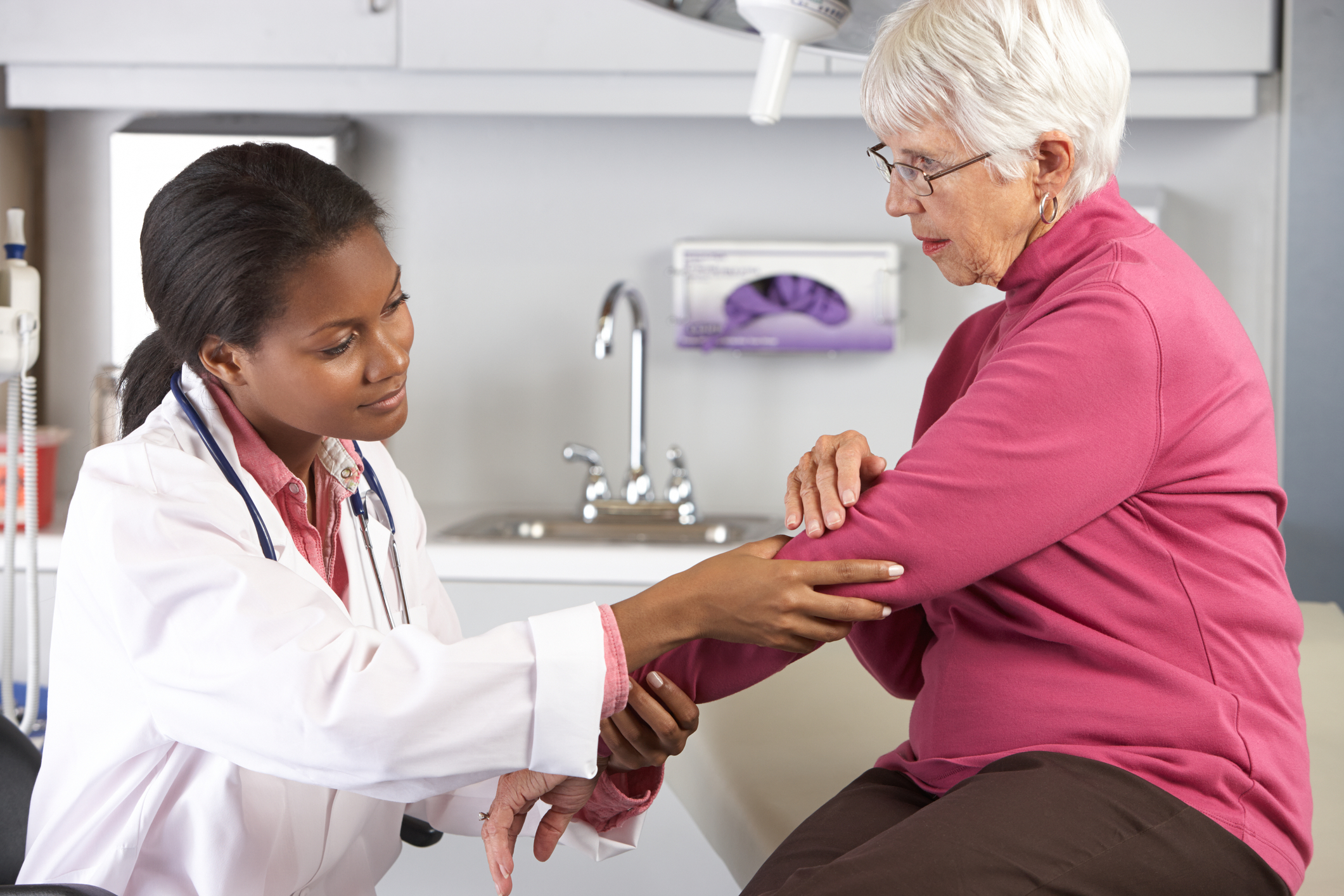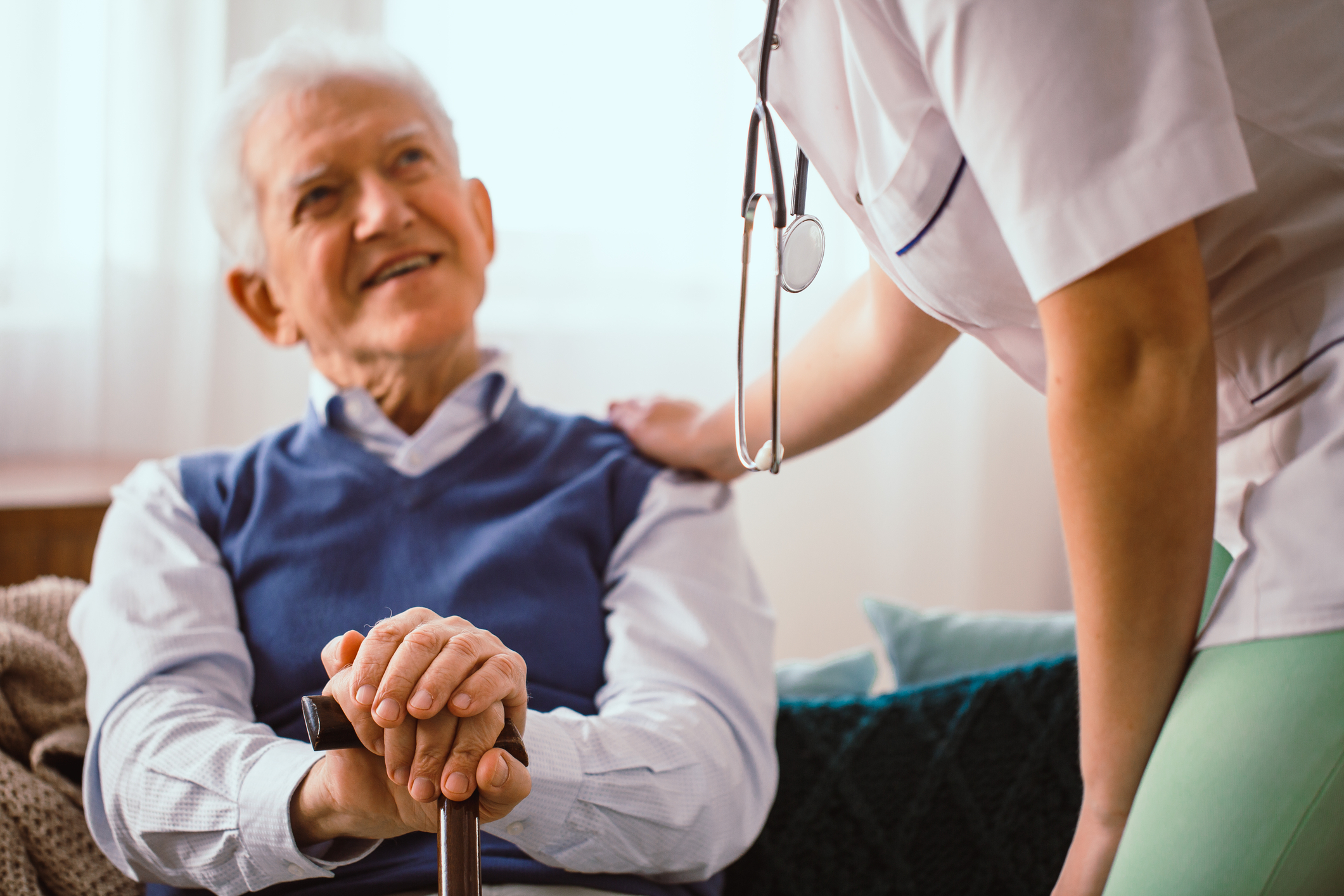Find out about The Open University's Health and Social Care courses and qualifications.
As part of the Ageing Well Public Talk Series we explore how important it is to maintain well-balanced nutrition and hydration throughout our lives, as well as regular physical and social activity in older age. Within the series we also explore how this knowledge might be used to facilitate self-management and delay the ageing processes for as long as possible.
In this article we will consider person-centred care in older people through the lens of health inequalities. We will look at the different ways in which older people might experience inequalities, and how they can be supported to engage with the 5 Pillars of Ageing. Health professionals are encouraged to reflect on their current approach to supporting older people who may experience health inequalities.

Health inequalities are unfair and avoidable differences in health status between different groups of people. Inequalities in health can be recognised by differences in length of life and the number of years spent in good health. These differences can be stark. In the most deprived areas of England during 2017–19, life expectancy in men was over 9 years shorter, compared to the least deprived. For women, the difference was nearly 8 years. During the same period, healthy life expectancy was nearly 20 years shorter in the most deprived areas for men and women. People living in deprived areas spend a greater proportion of their shorter lives in poor health.
For older people, poverty is just one driver of health inequalities. We can also see them arise due to a combination and accumulation of factors over an older person’s lifetime. Inequalities might be experienced specifically in relation to their older age, for example ageist attitudes in society. Older people often have greater health needs, but issues such as disability or transport may mean they find it harder to access certain services. The increasing use of digital technology means that some interventions may not be used by older people at all.
Inequalities can also exist where older people do receive treatment. A previous article in this series highlighted the poor evidence that exists for some drug therapies in older people. Even where the evidence base in older people is better, it may still be skewed in certain population groups. Women and people from ethnic minorities have been underrepresented in clinical trials to date and the benefits or risks associated with a given treatment may not be fully understood.

Health and care professionals have a role in ensuring that the treatment people receive in later life is timely, appropriate and accessible, irrespective of people’s age, background, financial circumstances or where they live. For professionals and services, being more aware of an individual's lived experience, and how this may affect their health status and the health choices they can make, means they are able to offer more person-centred care. The English public health resource, All Our Health, has published a guide to promote healthy ageing. It contains tips for professionals working at the front line all the way to strategic roles.
It may seem that an individual older person experiencing health inequalities is powerless to self-manage, but this is not always the case. While we should all be rightly concerned by the increasing use of food banks across all ages, most of the 5 Pillars for Health Ageing can still be achieved to a certain extent. It may require some adjustments on the part of the individual, possibly with help from family, friends or a health professional.
For an older person and their friends or family, knowing where there might be difficulties in undertaking the 5 Pillars, means you are able to ask for the right kind of support to help you age as healthily as possible. For professionals, reflecting on and filling gaps in your current knowledge and practice in relation to health inequalities, will enable you to offer more inclusive and person-centred care.







Rate and Review
Rate this article
Review this article
Log into OpenLearn to leave reviews and join in the conversation.
Article reviews